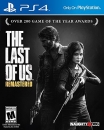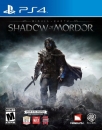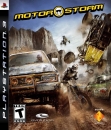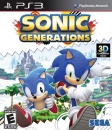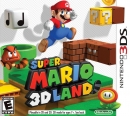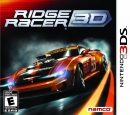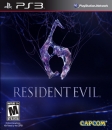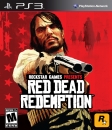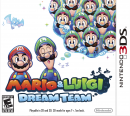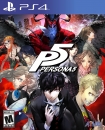What if the Wii lacked Motion Controls?
This alternate history is, if anything, the exact opposite of another question: What if the Wii was more powerful? In this alternate history, we will examine a Wii that, although it deemphasizes the importance of sheer power, doesn’t add an innovative control scheme.
Origins
Starting in 2001, even in real life, Nintendo was considering dropping out of the console arms race and doing their own thing. In our timeline, this "thing" was motion controls. In this alternate reality, Nintendo instead decides to focus on a low pricetag. By 2005, the "Revolution" is complete, and is shown at E3. The console is shown along with a new, conventionally styled, controller, which resembles the Wii U Pro controller. Twilight Princess is announced to be a launch title, and the Virtual Console, along with other backwards compatibility features, is described for the first time.
Nintendo doesn't plan on winning the seventh console generation. Instead, it plans on making essentially a more sucessful version of the GameCube. The Wii, as it would eventually be called, would make a tidy profit even at a relatively low price, would sell plenty of 1st party games, and would hopefully sell more than 20 million units.
In 2006, Nintendo officially reveals the "Wii" brand, and partially explains their new strategy of creating their own unique market within the games industry. The Wii's lineup is described in detail, and includes Super Mario Galaxy, Super Smash Bros Brawl, Metroid Prime 3, Fire Emblem, and Twilight Princess. Instead of Wii Sports, in this timeline EAD Group 2 focuses its attention on the next Animal Crossing, which comes out in late 2007.
People are skeptical of Nintendo's new strategy, until after the PS3's price is revealed (599 US Dollars!) and the September Press Conference where launch details are given. The price of the Wii is a mere $200, and although Wii Sports doesn't exist in this timeline, every Wii starts with 1000 Wii points to buy a game or two on the Virtual Console, which would be up day one. Furthermore, launch titles would include games like Twilight Princess. Compared to the PS3's launch, there was no contest, despite the latter's obvious horsepower advantage.
Early Days
On November 19, 2006, the Wii is launched in America. The crown jewel is Twilight Princess, but games such as Call of Duty 3, Excitetruck, Super Monkey Ball: Banana Blitz, Rayman Raving Rabbids, and Need for Speed: Carbon also round out the launch lineup. Notably absent is Red Steel, which is never conceived of without the existence of the Wiimote.
As the Wii is launched worldwide, it doesn't sell quite as well as in our timeline, but is far from an embarassment.
The lack of Wii Sports and similar games hurts, but this simply frees up studios for other duties. For instance, Fire Emblem: Radiant Dawn is ready for release as early as February, and Super Paper Mario comes out a month later.
Despite the poor 3rd party support, the games keep coming in 2007. Sonic and the Secret Rings proves to be a modest hit. Big Brain Academy: Wii Degree draws in the Brain Age crowd. Mario Party 8, though not the titan it is in our timeline, adds a bit of minigame action to the formula.
A content-rich rerelease of Resident Evil 4 sells surprisingly well. Metroid Prime 3 is considered something of a minor disappointment, but still gives Wii owners a shooter to complement their Call of Duty. MySims, Guitar Hero 3, and Mario & Sonic come out in the fall
and all start sucessful series on the platform. Finally, Nintendo releases their holiday lineup, which includes Super Mario Galaxy, a critical smash hit, and Animal Crossing: City Folk, a disappointment to some fans, but still a solid seller.
The real monsters of the Wii, however, had yet to come.
The Golden Age
In December 2007, Wii Fit was released in Japan. Although it started slow at first, this game became a phenomenon by its Western release, and soon became one of the best selling peripherals in video game history. What's more, Wii FIt became the best selling game on the Wii, with 18 million copies sold. Seeing as a Wii Fit bundle was still cheaper than another system, it was not hard to see why.
Going into 2008, two of the other five best selling games on the Wii were released: Mario Kart Wii and Super Smash Bros Brawl. These games would sell 15 and 10 million units each, and would ultimately work together with Wii Fit to make 2008 the Wii's best year ever.
Meanwhile, a seemingly unrelated event occured: Take-Two's being purchased by Electronic Arts. Few remember, but this was a distinct possibility in early 2008, and was only prevented by the sucess of Carnival Games. Without motion controls, however, the game was either not made or not as much of a hit, meaning that Take-Two was in even worse shape than in real life. In this state, it had no way to prevent EA's takeover, which gave EA control over Rockstar, the civilization franchise, and eventually games such as Borderlands.
The Wii, however, saw little of the effects. It was too busy cashing in on several huge titles and the ocassional sucessful 3rd party hit. The momentum was continued later in the year. With Animal Crossing already out and Wii Music impossible, Nintendo had no real holiday lineup. To counter this, they lowered the system's price to $150, barely more than the PS2. This cut, combined with the already existing roster of hits, was enough to make 2008 the best year ever for the Wii.
Waning Fortunes
2008, despite the sales sucess of the Wii, was a hard one for hardcore Nintendo gamers, especially after the great 2007. 2009, though not a truly great year from either a sales or critical perspective, did much to recapture fans. The early part of the year brought back old series such as Punch-Out, and games like EA SPorts Active cashed in on the Fitness trend started by Wii Fit.
E3 was an interesting affair. Three major console games were unveiled: New Super Mario Bros Wii, Super Mario Galaxy 2, and Metroid: Other M. The strangest thing, however, was the lack of a Wii logo on the Other M trailer...
In Japan, the second hugest news of 2009, after a new 2D Mario, was Monster Hunter's coming to the Wii in the form of Monster Hunter Tri. Although not quite as sucessful as in our timeline, it still is the best selling 3rd party game on a Nintendo console since the SNES.
As for the holiday season, it focused on the sequel to Wii Fit, aka "Plus," and NSMBWii, which ended up convincing many people to buy three new controllers. Each of these games sold 13 to 15 million units lifetime. Combined with other titles such as Mario & Sonic at the Winter Olympic Game, Pokepark Wii, the last major Guitar Hero and Rock Band games, and various fitness titles, and it was an alright year.
The End and the Beginning
2010 started off innocuously enough. The first major game, Super Mario Galaxy 2, didn't come out until the spring. Xenoblade's Japan-only release in June turned some heads, but it seemed like the Wii was winding down.
This notion was 100% correct.
At E3 2010, Nintendo showed off not one but TWO new systems in a massive 2 hour press conference. First, there was some old-fashioned Wii news, like the return of NBA Jam and Kirby via Kirby's Epic Yarn. Wii Party is also revealed. Then, there is the bombshell that is the 3DS, which would be released in early 2011 with Animal Crossing as a launch title. Finally, the Super Wii is revealed, aka Pachter's mythical "Wii HD." And it has a killer lineup, including titles such as Donkey Kong Country Returns, The Legend of Zelda: Skyward Sword, Sonic Colors, and a Goldeneye remake. And it would feature the "Nintendo Network," essentially Nintendo's answer to Xbox Live and the PlayStation Network.
The rest of the year went by in a flash. Wii Party and Kirby were released on the Wii and saw a fair amount of sucess. Launch details were given for the Super Wii, including a starting price of just $250, and price cut for the Wii to just $100 was announced. People who bought the deluxe version of the Super Wii would receive a copy of Super Mario All Stars for free with the system.
Finally, on November 21, the Super Wii was launched in America. Launch games include Donkey Kong Country Returns and Metroid: Other M from Nintendo. Although Other M disappoints many with its new direction, it still is received better than in our timeline thanks to a more conventional control scheme. Returns, meanwhile, is an early killer app, showcasing how good a 2D platformer could look on an HD system. 3rd party games include ports of Call of Duty: Black Ops, Assassin’s Creed: Brotherhood, and a few sports games. The big exclusive games are Goldeneye 007, which becomes the Super Wii’s first signature online game, and Sonic Colors.
Forgotten in the confusion is a December title called Epic Mickey, which is released on the 360 and PS3. However, due to the small audience for Disney games on these systems, it soon is forgotten.
The Era of the Super Wii and 3DS
Just before the 3DS launch, Mario Sports Mix is released for the Super Wii, becoming its first Mario game. Oddly enough, the Super Wii wouldn't receive a Mario platformer until late 2012, two years into its life. As for the 3DS launch, it goes better than in real life, thanks to the release of Animal Crossing: New Leaf as a launch title. Although there is still a major price cut in 2011, it occurs a month or two later, is only to $200, and causes Nintendo a lot less grief. Animal Crossing, after all, pulls a lot of weight.
The Super Wii's big game of Spring 2011 is The Legend of Zelda: Skyward Sword. Thanks to the lack of arguing over its control scheme late in development, it takes less time to make, even after factoring in a platform shift. The game is one of the best looking ever, combining a great art style with HD graphics. The game is different than our timeline's game, featuring a combat method based off of reading visual cues and responding properly.
Mid-2011 to Present Effects Undetermined
Effects on Nintendo
- In total, about 50 million Wiis are still sold, about half as many as in our timeline.
- Nintendo doesn’t make as much money as in our timeline, although they still make a profit during the same years as they did in our timeline
- Nintendo effectively exits the console arms race. They will release a new system whenever they feel like it, and at a limited price.
- Nintendo effectively becomes independent. Even more so than in real life, Nintendo decides that it doesn’t need to consult third parties when making hardware.
- Due to the Wii’s lesser success, Nintendo releases its 6th console in 2010, two years earlier than in our timeline. Ironically, 3rd parties start porting their games over to the Super Wii in fair numbers, giving the system healthy 3rd party support for at least 3 years.
- Nintendo becomes associated with two things: its robust first party lineup and fitness games, often from third parties, which often use the Balance Board peripheral.
- Since Nintendo EAD Group 2 is free from Wii Sports-related duties, Animal Crossing comes to the Wii in late 2007 and to the 3DS at launch in early 2011.
Effects on Sony and Microsoft
- Kinect and Move are never made into commercial products, although Kinect technology is incorporated into Microsoft’s third console.
- Instead of investing in Kinect technology and games later in the 360’s life, Microsoft instead focuses on internet connectivity features, advertising the annual Halo game, and trying in vain to create a new major franchise.
- The PS3 controller includes rumble.
Effects on 3rd parties (General)
- 3rd parties give the Wii even less consideration than in our timeline, although most of the casualties are casual games focused on minigame collections and simple sports
- Certain games, such as No More Heroes and Epic Mickey, are instead made for the HD systems.
- After the Super Wii is released, many 3rd party games are ported to the system, resulting in even greater sales to those who do it. These include Call of Duty, Assassin’s Creed, Battlefield, and Arkham City. The chief exception: WRPG games such as Skyrim and Mass Effect 3.
Effects on 3rd parties (Specific)
- Due to the lack of Just Dance and Rabbids games, Ubisoft makes less money and has a weaker relationship with Nintendo than in our timeline; only one Ubisoft game, My Fitness Coach, breaks a million on the Wii.
- Take-Two wasn’t able to use minigame collections to fund larger projects on other platforms, and is bought by Electronic Arts in early 2008. The success of Grand Theft Auto 4 makes the deal a net gain for EA.
- Electronic Arts, due to this turn of events, now has rights over the Bioshock, Grand Theft Auto, Civilization, Red Dead, and eventually Borderlands games, making the company even bigger than it is in our timeline.
- Sega grows increasingly close with Nintendo, with Sonic appearing in two of the top 20 best selling Wii games and Sonic Colors being a Super Wii launch title. Even the eventual release of Sonic Generations was also on the Super Wii.
- Epic Mickey never reaches the level of fame it did in real life, meaning there was never a sequel.
Effects on Gaming Culture
- Due to the Wii’s low price even at launch, it becomes common for gamers to own both a Wii and another gaming system.
- Nintendo is largely disregarded by the “hardcore” gamer, who now typically at least plays games on another system.
- Even Nintendo fans often play another system as well, although this is helped by the Wii’s low cost.
- A generation of new gamers is introduced to gaming via more complicated controllers than the Wiimote
- The Super Wii’s strong launch actually goes a long way toward reclaiming the hardcore audience. Unlike in our timeline, there is no sign that Nintendo’s newest system is about to be out of date.
Totals
50 Wiis million sold, with 300 million games,
44 million-seller games, of which 25 are from 3rd parties
Millions of Sales a Year
| Year | Wii |
| 2006 | 2 |
| 2007 | 9 |
| 2008 | 14 |
| 2009 | 11 |
| 2010 | 8 |
| 2011 | 5 |
| 2012 | 1 |
| Total | 50 |
Hypothetical VGChart
| Game | Publisher | Year | Sales (Millions) |
| Wii Fit | Nintendo | 2008 | 18 |
| Mario Kart Wii | Nintendo | 2008 | 15 |
| Wii Fit Plus | Nintendo | 2009 | 15 |
| New Super Mario Bros Wii | Nintendo | 2009 | 13 |
| Super Smash Bros Brawl | Nintendo | 2008 | 10 |
| Super Mario Galaxy | Nintendo | 2007 | 8 |
| Super Mario Galaxy 2 | Nintendo | 2010 | 5.5 |
| The Legend of Zelda: Twilight Princess | Nintendo | 2006 | 5 |
| Wii Party | Nintendo | 2010 | 4 |
| Mario & Sonic at the Olympic Games | Sega | 2007 | 3 |
| Mario Party 8 | Nintendo | 2007 | 2.5 |
| Zumba Fitness | Majesco | 2010 | 2.5 |
| Sonic and the Secret Rings | Sega | 2006 | 2 |
| Lego Star Wars: The Complete Saga | Activision | 2007 | 2 |
| Guitar Hero 3 | Activision | 2007 | 2 |
| Animal Crossing: City Folk | Nintendo | 2007 | 2 |
| Big Brain Academy: Wii Degree | Nintendo | 2007 | 2 |
| Super Paper Mario | Nintendo | 2007 | 2 |
| Mario Strikers Charged | Nintendo | 2007 | 2 |
| Guitar Hero: World Tour | Activision | 2008 | 2 |
| EA Sports Active | Electronic Arts | 2009 | 2 |
| Call of Duty 3 | Activision | 2006 | 1.5 |
| Resident Evil 4 | Capcom | 2007 | 1.5 |
| Lego Batman | Warner Bros | 2008 | 1.5 |
| My Fitness Coach | Ubisoft | 2008 | 1.5 |
| Monster Hunter Tri | Capcom | 2009 | 1.5 |
| Super Monkey Ball: Banana Blitz | Sega | 2006 | 1 |
| Pokemon Battle Revolution | Nintendo | 2006 | 1 |
| Dance Dance Revolution: Hottest Party | Konami | 2007 | 1 |
| Metroid Prime 3 | Nintendo | 2007 | 1 |
| MySims | Electronic Arts | 2007 | 1 |
| Lego Indiana Jones | LucasArts | 2008 | 1 |
| Rock Band | MTV | 2008 | 1 |
| Sonic Unleashed | Sega | 2008 | 1 |
| Call of Duty: World at War | Activision | 2008 | 1 |
| Monopoly | Electronic Arts | 2008 | 1 |
| Mario Super Sluggers | Nintendo | 2008 | 1 |
| MySims Kingdom | Electronic Arts | 2008 | 1 |
| Mario & Sonic at the Olympic Winter Games | Sega | 2009 | 1 |
| The Beatles: Rock Band | Nintendo | 2009 | 1 |
| Guitar Hero 5 | Activision | 2009 | 1 |
| Lego Harry Potter Years 1-4 | Warner Bros | 2010 | 1 |
| Kirby's Epic Yarn | Nintendo | 2010 | 1 |
| Zumba Fitness 2 | Majesco | 2011 | 1 |
Love and tolerate.




























